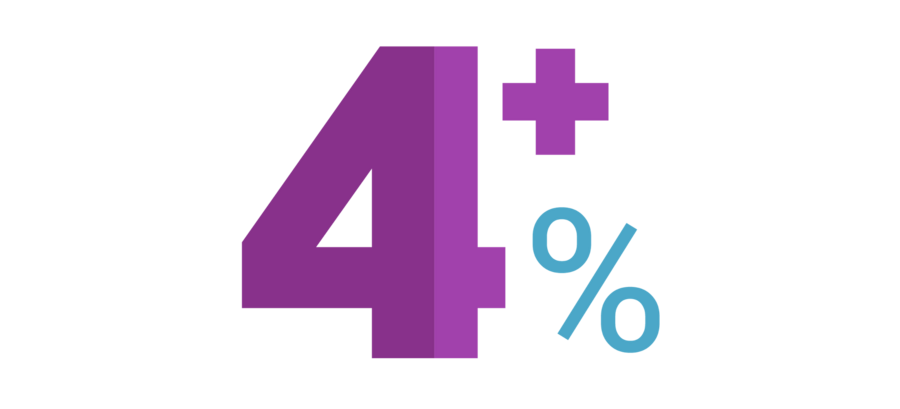
Barring an Extremely Adverse Scenario, JPMorgan Hopes to Maintain Dividend
Over the weekend, JPMorgan Chase (JPM) Chairman and CEO Jamie Dimon published his annual letter to shareholders.
Mr. Dimon laid out the bank's response to the coronavirus pandemic and did his best to set expectations for the firm's future financial performance, including JPMorgan's dividend.
First, Mr. Dimon said he expects a "bad recession" with financial stress that will at least be similar to the 2008 financial crisis. Most large banks including JPMorgan have already suspended their share repurchases to begin preserving capital.
Households and businesses have an unprecedented need for credit since many of them have seen their cash flow disappear almost overnight.
For example, JPMorgan said that companies have already drawn down more than $50 billion of their credit revolvers to prepare themselves for the crisis. Mr. Dimon said this "dramatically" exceeds what happened in the global financial crisis.
As a result, the pandemic has put banks in a tough spot:
Mr. Dimon laid out the bank's response to the coronavirus pandemic and did his best to set expectations for the firm's future financial performance, including JPMorgan's dividend.
First, Mr. Dimon said he expects a "bad recession" with financial stress that will at least be similar to the 2008 financial crisis. Most large banks including JPMorgan have already suspended their share repurchases to begin preserving capital.
Households and businesses have an unprecedented need for credit since many of them have seen their cash flow disappear almost overnight.
For example, JPMorgan said that companies have already drawn down more than $50 billion of their credit revolvers to prepare themselves for the crisis. Mr. Dimon said this "dramatically" exceeds what happened in the global financial crisis.
As a result, the pandemic has put banks in a tough spot:
Recognizing the extraordinary extension of new credit, mentioned above, and knowing there will be a major recession mean that we are exposing ourselves to billions of dollars of additional credit losses as we help both consumer and business customers through these difficult times.
After acknowledging the wide range of outcomes that exists, JPMorgan reviewed two stress tests of its operations, beginning with the Fed's 2019 stress test which occurred last summer.
This test assumed outcomes like U.S. unemployment peaking at 10% and the stock market falling 50%. JPMorgan also baked in plans to lend an additional $150 billion for its clients' needs during these unprecedented times.
In that scenario, JPMorgan would still be profitable every quarter despite a meaningful reduction in revenue.
The bank's common equity Tier 1 (CET1) ratio would likely hold at a very strong 10% (above the minimum 8% level required by regulators), even after JPMorgan continued paying its dividend.
However, in light of the coronavirus outbreak, JPMorgan shared "an extremely adverse scenario" the bank recently ran.
This scenario assumes an even deeper contraction of gross domestic product, down as much as 35% in the second quarter and lasting through the end of the year.
The bank's test also assumed U.S. unemployment continued increasing, peaking at 14% in the fourth quarter. Mr. Dimon says "this scenario is quite severe and, we hope, unlikely."
Regardless, JPMorgan believes it would still end the year with a CET1 ratio of about 9.5%, well above the minimum level required by regulators. But you can only imagine how fragile the world would be if that scenario materialized.
Although JPMorgan believes it could still pay its dividend, in such a scenario Mr. Dimon said the bank would consider scrapping its payout until it had more clarity on what the future held:
If it were to play out, the Board would likely consider suspending the dividend even though it is a rather small claim on our equity capital base. If the Board suspended the dividend, it would be out of extreme prudence and based upon continued uncertainty over what the next few years will bring.
We outlined many of these uncertainties in our March note on JPMorgan and expect to maintain our Borderline Safe Dividend Safety Score on the bank for the foreseeable future.
JPMorgan remains one of the strongest banks in the world and goes into this crisis with a very conservative balance sheet, especially compared to 2008 (see below). This pandemic won't last forever, and JPMorgan will get through this.

However, if an "extremely adverse scenario" plays out, JPMorgan's dividend may not survive. It's just too soon to say what might happen:
Of course, we do not know how this crisis will ultimately end, including how long it will last, how much economic damage it will do, or how fast or slow the recovery will be. We have always been serious about stress testing and run an enormous number of tests per week so that we are prepared for most crises. But as is often the case, this “actual new crisis” – while it shares attributes with what is being stress tested – is dramatically different from the expected.
JPMorgan declared its regular dividend payment on March 17, and we will continue monitoring the situation.



